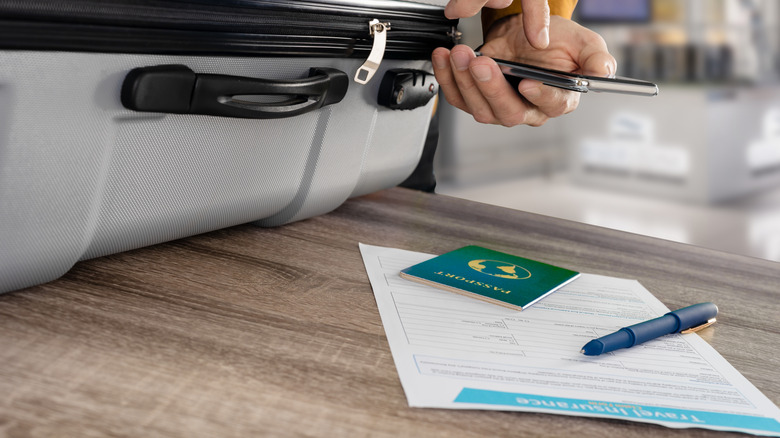What Really Happens When Your Cruise Ship Has A Mechanical Breakdown
Every year, over 30 million people climb aboard cruise ships, according to the Cruise Lines International Association (CLIA). And well, who can blame them? You get to lounge around on what's essentially a hotel at sea, with a new destination waiting for you every morning — from Mediterranean coastlines in the winter to Alaskan glaciers. Plus, cruising is believed to one of the safest ways to travel, which explains why the numbers keep climbing. But even with all the perks, cruises aren't immune to hiccups — and yes, that includes mechanical failures. The bright side? It's rarely a Titanic situation. Worst case, your trip gets axed. Best case, you still make the trip, just at a more, err, leisurely pace.
To be fair, cruise ship breakdowns don't happen often. These vessels go through rigorous inspections and strict safety protocols before they even get the clearance to sail. But as cruise expert Stewart Chiron told The Washington Post, "Ships are like airplanes, they're like cars. So sometimes there's an issue — they break down." Engine troubles can stem from electrical glitches, maintenance oversights, or even human error. Take 2019, for example, when Tui's Marella Discovery suffered an electrical failure that slowed the ship down and caused it to miss three port stops. Meanwhile, in 2024, Swan Hellenic's SH Diana had to cut its 21-day voyage short by a week due to an engine problem that couldn't be fixed at sea.
The silver lining? When these hiccups happen, cruise lines know how to play nice. Passengers on both ships were compensated. So, if your booked cruise ever hits a mechanical snag, rest easy knowing you'll likely get all — or least some — of your money back.
In many cases, you are entitled to compensation
Mechanical issues shouldn't be a reason why you should avoid taking cruises altogether, of course. Seriously, don't let the thought of a hiccuping engine keep you from sipping cocktails on the deck of a floating resort. From the moment you book to the second you step off, know that you're covered by the International Cruise Line Passenger Bill of Rights — basically a list of promises cruise lines have to keep.
On there, it explicitly states that travelers have a "right to a full refund for a trip that is canceled due to mechanical failures, or a partial refund for voyages that are terminated early due to those failures." And if your cruise itinerary suddenly changes because the ship starts acting up, you have the right to be kept in the loop. In the worst-case scenario — disembarking at some random port — the cruise line is also on the hook for your lodging and transport to either the ship's intended end point or back home. Not a bad safety net, really.
That said, don't put all your faith in the cruise gods to come through if things go south. It's smart to have a backup plan, and by that, we mean travel insurance. As cruise expert Stewart Chiron told The Washington Post, "I'm not trying to over dramatize it, but there are so many moving parts. The insurance is so important that your property, your health and your trip is protected." If the ship's engine decides to throw a tantrum, you'll be glad you spent a little extra to make sure you're covered.

